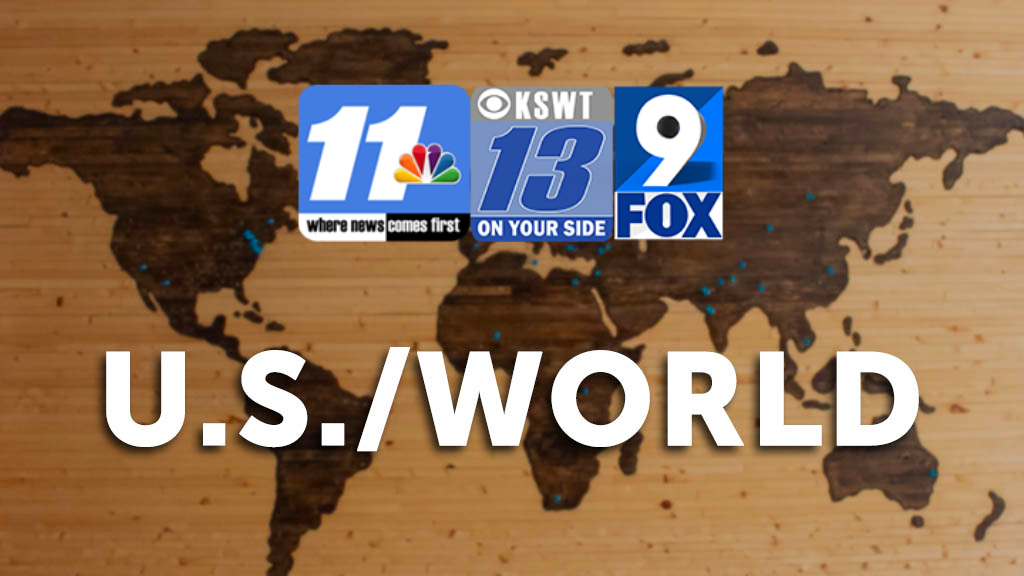5 things to know for June 22: Covid-19, NCAA, White House, New York, Belarus

By AJ Willingham, CNN
Parts of Australia have been overrun by mice since August, and a fresh plague of the critters has prompted the evacuation of a prison in New South Wales.
Here’s what you need to know to Get Up to Speed and On with Your Day.
(You can also get “5 Things You Need to Know Today” delivered to your inbox daily. Sign up here.)
1. Coronavirus
After weeks of warnings about the growing dangers of coronavirus variants, the Delta variant may be responsible for a six-fold increase in hospitalizations in one Missouri city. A hospital CEO in Springfield said most new patients there are unvaccinated and appear to have not observed basic pandemic precautions. Health experts worry more local spikes like this could be on the horizon. We’re now about two weeks away from the Biden administration’s self-imposed July 4 deadline to reach a 70% partial vaccination rate among US adults. And while the reported 65.4% seems promising, vaccination rates have slowed to a crawl. Meanwhile, vaccine advisers to the US Centers for Disease Control and Prevention are set to meet tomorrow to discuss a handful of reports linking treatable heart inflammation to the coronavirus vaccine in youths and young adults.
2. NCAA
The Supreme Court unanimously handed down a huge ruling yesterday, saying student athletes can receive education-related payments. The case could reshape college sports by allowing more money from a billion-dollar industry to go to the players. In a concurring opinion, Justice Brett Kavanaugh said the NCAA is essentially acting “above the law” in how it treats athletes in forbidding them from making money off their college fame. The ruling is the first time in decades the Supreme Court has considered the issue, and it is an enormous win for a class of students who have said they were being exploited. The NCAA had argued the spending caps at issue were needed to preserve a distinction between amateur and pro sports.
3. White House
Lawmakers are set to resume tense negotiations over voting rights, infrastructure and police reform during an important week for President Biden’s legislative goals. Biden met privately yesterday with two Democrats — Sens. Kyrsten Sinema and Joe Manchin — who are crucial players in the President’s push for his $4 trillion economic agenda. Today, the Senate is set to vote on whether to advance the sweeping elections reform bill. But without Republican support, Democrats are poised for a stinging defeat. However, there could be a silver lining if Democrats stay united and create a clear contrast between their voting priorities and Republicans’. As for police reform, a key GOP legislator said it’s “June or bust.” The Senate heads into a July 4 recess at week’s end, which could kill burgeoning momentum on the issue.
4. New York mayor
New York City is now the largest US jurisdiction to implement ranked-choice voting as the city’s primary elections get underway today. Under this system, voters rate their top five choices in order of preference instead of picking just one — a change that allows the city to avoid separate runoff elections in crowded mayoral primaries in which no one is expected to reach the 50% threshold to win outright. (The November general election will use a standard ballot.) The problem? It could take weeks to learn the full results. Thirteen Democrats and two Republicans are running in the mayoral primaries; they include former 2020 presidential candidate Andrew Yang and New York City Comptroller Scott Stringer. Other decisions on the ballot, like for a new Manhattan district attorney, could have wide-ranging political consequences.
5. Belarus
The United States, European Union, United Kingdom and Canada rolled out fresh sanctions on Belarus yesterday in a coordinated response to President Alexander Lukashenko and his government’s forced landing last month of a Ryanair flight and subsequent arrest of an opposition journalist. Dozens of people and entities are affected by the sanctions, which include US visa restrictions on 46 officials. The flight diversion and arrest of journalist Raman Pratasevich sparked international outcry. Pratasevich’s appearances on Belarusian state TV since then have prompted opposition members and observers to suggest he showed signs of being tortured.
BREAKFAST BROWSE
Brendan Fraser’s different red carpet look has tongues wagging
Fans are theorizing it could be related to his next project, in which he plays a 600-pound teacher.
These are the world’s most expensive cities for expats in 2021
You’ll have to charge if you wanna live large in some major cities in China and Switzerland.
How to retire a millionaire
Speaking of money, let’s just, uh, bookmark this one right here …
What are floating breakfasts, and why have they become so popular?
It’s like breakfast in bed, fancy vacation-style.
Drinking coffee of any type cuts risk for liver problems, study says
That means it’s totally OK to pour a third cup, right? … RIGHT?!
TODAY’S NUMBER
81%
That’s the proportion of major metropolitan areas — regions with more than 200,000 residents — that were more segregated in 2019 than they were in 1990, despite fair housing laws and policies created to promote integration.
TODAY’S QUOTE
“I just wanted to take a quick moment to say that I’m gay.”
Carl Nassib, a defensive lineman with the Las Vegas Raiders, who became the first active NFL player ever to announce he’s gay. “I just think that representation and visibility are so important,” he went on to say in an Instagram video post. “I actually hope that one day videos like this and the whole coming out process are just not necessary. But until then, I’m going to do my best and do my part to cultivate a culture that’s accepting, that’s compassionate.”
TODAY’S WEATHER
Check your local forecast here>>>
AND FINALLY
How erasers are made
Sadly, it is not delicious taffy being rolled in this video. It’s a glob of erasers, waiting to be born. (Click here to view.)